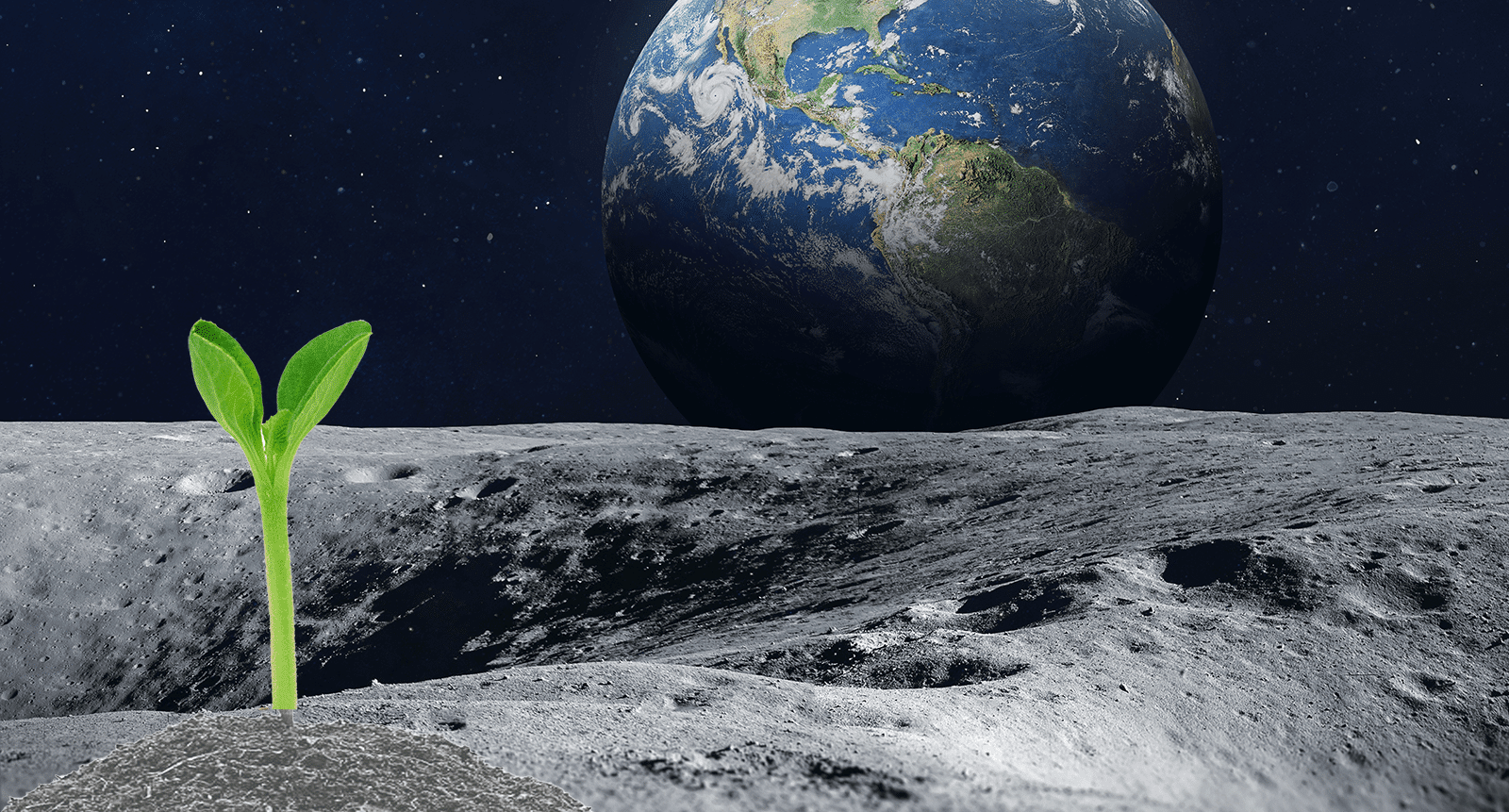Lunaria One is an international consortium made up of universities and public bodies that aims to increase sustainable activities in space, including Ben Gurion University

The SpaceIL association is on the last line of the selection of experiments that will be integrated into its journey to the moon, in the Genesis 2 mission expected to be launched in 2025. The association announces another experiment that joins the mission, an experiment in collaboration with Lunaria One, in which plants will grow on the moon.
The project is an important step towards proving the ability to grow plants in lunar conditions for food, medicine, and oxygen production needs for astronauts who will land on the moon in the future, as well as learning new ways to maximize sustainable food production here on Earth. The team consists of an international consortium of engineers, biologists and space professionals. The biological team consists of researchers from the research fields of plant biology and imaging. The center of the team is Prof. Simon Barak, from the Yaakov Blaustein Desert Research Institute at Ben-Gurion University of the Negev.
Lunaria One is an international consortium made up of universities and public bodies that aims to increase sustainable activities in space. Alongside the technological and scientific activity, the consortium has the same goals as the SpaceIL association, which include a desire to share the general public in space exploration, promote education and thus bring new minds closer to the field of space in the future.
To carry out the experiment known as Aleph, Lunaria One recruited the experts in the fields of engineering, biology and education. As a joint initiative for the common good, the project involves the combined effort of a large number of organizations around the world, commercial companies, Ben-Gurion University of the Negev, Australian universities QUT, RMIT, ANU and the University of Cape Town in South Africa.
In addition to the team of experts, the Aleph team will invite people of different ages from around the world to offer unique solutions to the challenges that arise in this project.
As you remember, Genesis 2 will include a mother spacecraft and two landers that will land on both sides of the moon. The mother spacecraft will continue to orbit the moon for about 5 more years.
Aleph, the chosen experiment, will fit into one of these landers. As part of the experiment, a small hermetically sealed dedicated cell will carry seeds and plants that can survive in a dormant/dried state and can "reawaken" when irrigated. The types of plants will be carefully chosen according to the ability to grow quickly and the ability to withstand extreme temperatures. After landing on the moon, plant growth will be monitored for 72 hours with data and images transmitted within 24 hours.
Shimon Sharid, CEO of the association SpaceIL : "The chosen experiment has enormous value both for our life here on Earth and for humanity's progress in space exploration. Examining plant growth under extreme conditions can help us act correctly in the future regarding food security as the climate here changes and as for space, plant growth will help humanity in long-term missions. We are happy about the collaboration with Lunaria One and are very excited about it".
"The main value that guides the Aleph project is that space exploration is for everyone. We don't want a future where only remotely controlled autonomous machines can exist outside of Earth, but a future where humans can live and thrive in space and on the moon. says Lauren Pell, director. Lunaria One The goal of Project Aleph is to simplify the science and engineering behind growing plants on the moon so that everyone can be involved and connected.
"The study of plants on the moon is critical to our food security on Earth and in space. Space is an extraordinary testing ground for examining how to grow plants in the most extreme environments. As a result of the extreme climate changes the planet is facing, challenges arise in managing food security in the future. The Aleph project creates an opportunity for everyone to explore how to create a safe and supportive environment for plants to flourish." says Caitlin Birt Scientific advisor to Lunaria One.
Prof. Simon Barak, from Ben-Gurion University of the Negev and coordinator of the Lunaria One biological team, concluded by saying that: "The Earth and its resources are finite. The future existence of humanity depends on reaching the stars."
More of the topic in Hayadan:
- SpaceIL has chosen a first experiment for the Genesis 2 mission: testing the effectiveness of drugs in deep space missions
- The SpaceIL association began building simulations for the Genesis 2 spacecraft
- The Aerospace Industry will develop and build a lunar lander based on SpaceIL's engineering know-how

2 תגובות
What plants will breathe?
Who will they sell the skin of the bear they hunted on the moon?